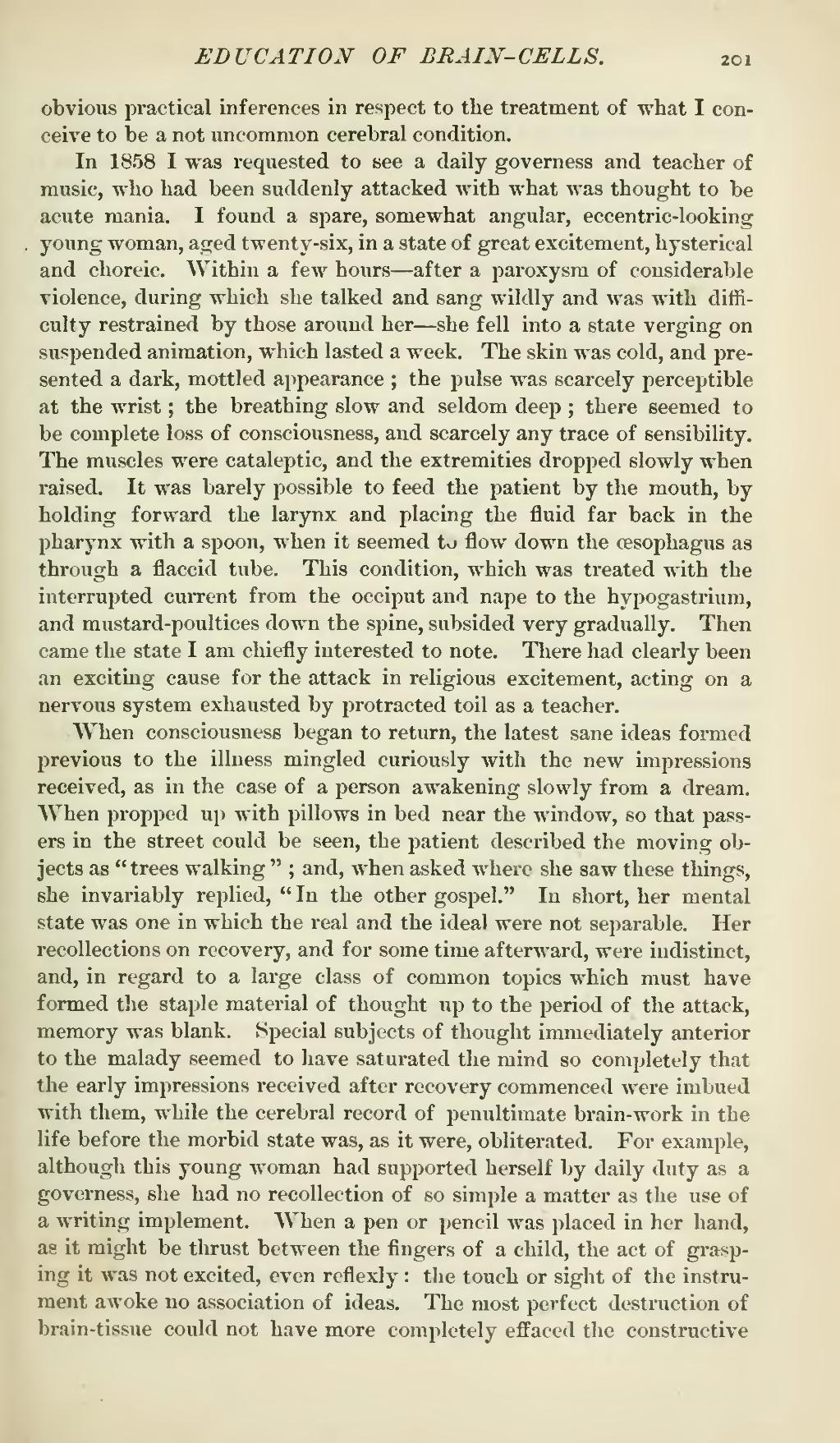obvious practical inferences in respect to the treatment of what I conceive to be a not uncommon cerebral condition.
In 1858 I was requested to see a daily governess and teacher of music, who had been suddenly attacked with what was thought to be acute mania. I found a spare, somewhat angular, eccentric-looking young woman, aged twenty-six, in a state of great excitement, hysterical and choreic. Within a few hours—after a paroxysm of considerable violence, during which she talked and sang wildly and was with difficulty restrained by those around her—she fell into a state verging on suspended animation, which lasted a week. The skin was cold, and presented a dark, mottled appearance; the pulse was scarcely perceptible at the wrist; the breathing slow and seldom deep; there seemed to be complete loss of consciousness, and scarcely any trace of sensibility. The muscles were cataleptic, and the extremities dropped slowly when raised. It was barely possible to feed the patient by the mouth, by holding forward the larynx and placing the fluid far back in the pharynx with a spoon, when it seemed to flow down the oesophagus as through a flaccid tube. This condition, which was treated with the interrupted current from the occiput and nape to the hypogastrium, and mustard-poultices down the spine, subsided very gradually. Then came the state I am chiefly interested to note. There had clearly been an exciting cause for the attack in religious excitement, acting on a nervous system exhausted by protracted toil as a teacher.
When consciousness began to return, the latest sane ideas formed previous to the illness mingled curiously with the new impressions received, as in the case of a person awakening slowly from a dream. When propped up with pillows in bed near the window, so that passers in the street could be seen, the patient described the moving objects as "trees walking"; and, when asked where she saw these things, she invariably replied, "In the other gospel." In short, her mental state was one in which the real and the ideal were not separable. Her recollections on recovery, and for some time afterward, were indistinct, and, in regard to a large class of common topics which must have formed the staple material of thought up to the period of the attack, memory was blank. Special subjects of thought immediately anterior to the malady seemed to have saturated the mind so completely that the early impressions received after recovery commenced were imbued with them, while the cerebral record of penultimate brain-work in the life before the morbid state was, as it were, obliterated. For example, although this young woman had supported herself by daily duty as a governess, she had no recollection of so simple a matter as the use of a writing implement. When a pen or pencil was placed in her hand, as it might be thrust between the fingers of a child, the act of grasping it was not excited, even reflexly: the touch or sight of the instrument awoke no association of ideas. The most perfect destruction of brain-tissue could not have more completely effaced the constructive

